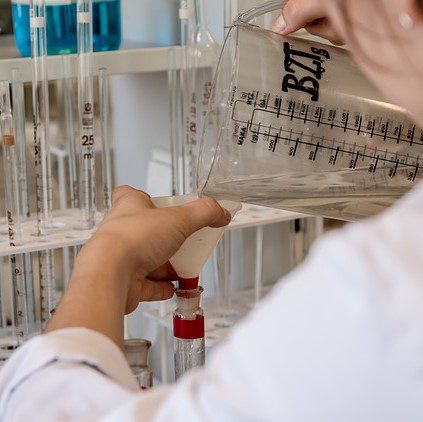Jeffrey Miner, Ph.D., Director of Basic Research in Washington University’s Division of Nephrology, has received a $2.25M five-year grant from the National Institute of Diabetes and Digestive and Kidney Diseases (NIDDK).
The grant funds projects that are supported by robust early data and have the potential to advance the field of research significantly.
Dr. Miner and his lab intend to use the grant for the study of small-molecule drugs, CRISPR (gene editing therapy), and protein biochemistry in mouse models. The team hopes that the technologies will cause the glomerular basement membrane to function normally. The basement membrane is an essential part of kidney filtration.
If the treatment proves to be beneficial, it offers the possibility of being able to delay end-stage kidney disease, which is the end result of Alport syndrome.
About Alport Syndrome
Alport syndrome is a genetic disorder resulting from mutations affecting type IV collagen a345 family of proteins. These are found in the basement membranes of the organs. Most of these mutations change single protein building blocks (amino acids) in a region where the alpha5(IV) collagen chain combines with other type IV collagen chains.
The COL4A5 gene causes the majority of Alport syndrome cases. The gene encodes one of the six subunits of type IV collagen which is the major structural component of basement membranes.
Alport syndrome causes kidneys to gradually decline in function, leading to hematuria (blood in urine), edema (excess fluid in tissues), and hypertension. The normal function of the kidney is for the glomerular basement membrane to filter waste products and maintain useful molecules in the urine.
This process is disturbed in Alport syndrome, where the abnormal collagen disrupts the filter resulting in red blood cells and proteins in the urine.
Currently, there are no approved treatments for the disease. Alport syndrome is estimated to affect 1 in every 5,000-10,000 people. Approximately 30,000-60,000 people in the U.S. have been diagnosed with the syndrome, thus meeting the rare disease criteria of under 200,000 individuals in the U S. living with the disorder.
The Miner Lab
According to Dr. Miner, the function and composition of the glomerular basement membrane (GBM) is the focus of his lab. The GBM is a network of proteins and other molecules surrounding, supporting, and giving structure to cells and tissues in the body (otherwise called an extracellular matrix).
The GBM is an essential part of the kidney’s filtration functions.
The proteins are produced by podocytes which are specialized cells of the kidney’s filtering system. When this type of collagen IV is not sufficient, it causes structural abnormalities of the GBM as well as secondary damage that impacts the glomerulus.
Dr. Miner added that the aim of the new grant is to either restore the Alport GBM to a normal or close to normal composition; alternatively, the goal is to change its composition by removing pathogenic characteristics and adding therapeutic components.
To reach this goal, Dr. Miner says that technologies using CRISPR, small molecule, and protein biochemistry will be employed using Alport syndrome mouse models.
Looking Forward
Renal failure caused by Alport syndrome is currently treated by dialysis, or, for some patients, renal transplantation. One day, however, gene therapy may provide a cure for the disorder with the replacement of the abnormal COL4A5 gene.
The Alport Syndrome Foundation (ASF) is the leading independent, nonprofit organization in the United States that gives a voice to the Alport syndrome community. ASF’s mission is to improve the lives of patients through education, empowerment, advocacy, and investment in research.
Follow @JeffMinerPhD and @AlportSyndFndn on Twitter and keep up to date with the Washington University in St. Louis Division of Nephrology at @WUNephrology and nephrology.wustl.edu.







